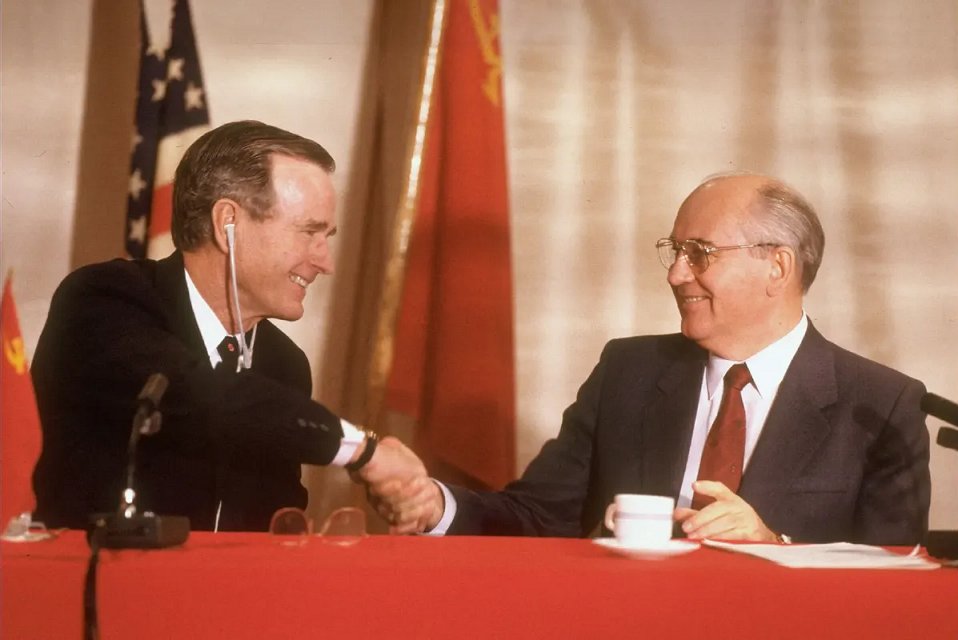George H.W. Bush and Mikhail Gorbachov shaking hands at the Malta Summit in December 1989 that brought the Cold War to an end under capitulatory terms for Moscow that was a ratification for counter-revolution. This effectively completed the digging of the grave for the Soviet degenerated workers state that Boris Yeltsin killed and buried.
“At a formal dinner party, the person nearest to death should always be seated closest to the bathroom.”
–George Carlin
On 30 August 2022, the last leader of the Soviet Union, Mikhail Gorbachov croaked at the age of 91, creating a worldwide media circus. His death came at the zenith of the worst anti-Russian hysteria not seen since the 1980’s over Moscow’s invasion of Ukraine just this past February. An action by the globally detested Vladimir Putin that effectively stood in the way of NATO and EU expansion. As the bourgeois media turned Gorbachov’s death into an international media sensation Joe Biden, Elizabeth II, Olaf Scholz, Emmanuel Macron, Justin Trudeau, Antonio Guterres, Ursula von der Leyen, Jens Stoltenberg and other imperialist heads of state pulled out all stops in expressing emotional statements of condolences to Gorbachov’s relatives and mourning the loss of an ideal Russian leader. At the same time millions of bourgeois Westerners after months of screaming for Russian blood via social media, YouTube and online news comments sections echoed their respective leaders in crying a Nile of tears for the loss of Gorbachov. A rich display of conniving cynicism rarely seen. Mourning Gorbachov while vilifying and castigating anything and anyone Russian from students, athletes and even cats to banning great artists and writers Pyotr Tchaikovsky, Fyodor Dostoyevsky, Leo Tolstoy, and Aleksandr Pushkin who have all been held responsible for Putin’s invasion of Ukraine. So why is Mikhail Sergeyevich Gorbachov – a Russian – absolved from any responsibility in the West for the recent Russian invasion of Ukraine?
The answer was given by Biden in his statement of 30 August attributed to Gorbachov: “As leader of the USSR, he worked with President Reagan to reduce our two countries’ nuclear arsenals, to the relief of people worldwide praying for an end to the nuclear arms race. After decades of brutal political repression, he embraced democratic reforms. He believed in glasnost and perestroika – openness and restructuring – not as mere slogans, but as the path forward for the people of the Soviet Union after so many years of isolation and deprivation…. These were the acts of a rare leader – one with the imagination to see that a different future was possible and the courage to risk his entire career to achieve it. The result was a safer world and greater freedom for millions of people.”

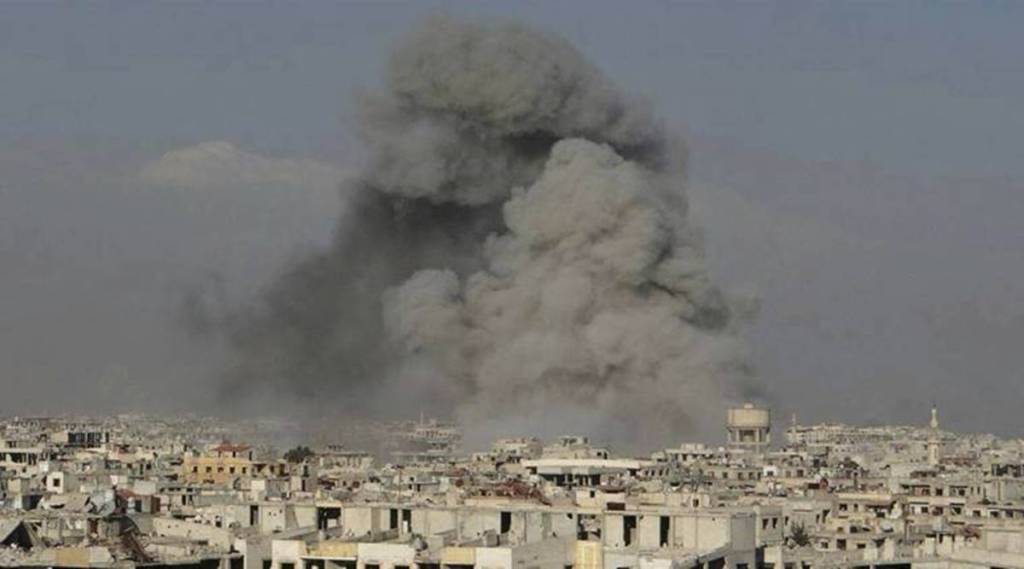
Safer world indeed! Why Biden and all the other imperialists are mourning for Gorbachov is that he capitulated and led a series of market reforms that not only caused the capitalist counter-revolution of 1989-1992 but destroyed the USSR itself leaving the United States as the remaining superpower free to execute their unhinged foreign policy for controlling the wealth, resources, and peoples of the world with their imperialist allies unchallenged by a rival superpower, i.e the Soviet Union. Beginning with Gorbachov’s endorsement of the U.S/UN rape of Iraq during the Gulf War, the end of the Cold War and the fall of the USSR allowed the U.S/NATO to wage wars of aggression in countries they couldn’t without the certainty of the Soviet response: Iraq, Yugoslavia, Afghanistan, Libya, Syria and others who were Soviet clients or workers states. It meant the expansion of NATO into Eastern Europe in violation of the 1990 pledge made by U.S state secretary James Baker and German foreign minister Hans-Dietrich Genscher that there would be no expansion eastward, thereby stationing U.S troops and weapons in those countries, including ex-Soviet republics. An action that is meant to surround and corner Russia keeping it in its place. Not to mention leaving Cuba undefended, North Korea isolated, and the continue military buildup, surrounding, and war provocations against China including building military bases and installations where they couldn’t during the Cold War.
The U.S-led wars of aggression have left millions of people dead, and countless of millions more in deprivation and immiseration including locked in an endless sectarian war that in certain places such as Libya has spilt across borders turning impoverished countries into seemingly permanent killing fields. All the while, Western corporations loot natural resources such as oil paying cheap labor without benefits and unsafe conditions while imperialist leaders pat themselves on the back for bringing “freedom and democracy” to these people. When their malignant and cannibalistic system doesn’t produce the prosperity they promise, U.S and Western rulers simply absolve themselves of any responsibility, in which case this invites a racist backlash from the media and millions of Western patriots who then blame the victims saying they are too inferior and barbaric to build a stable country. In retrospect yes, the imperialists have the most reason to mourn Gorbachov, for without Glasnost and Perestroika, imperialism’s military adventures would have been more consequential if not prevented. This is why Gorbachov was awarded the Nobel Peace Prize.
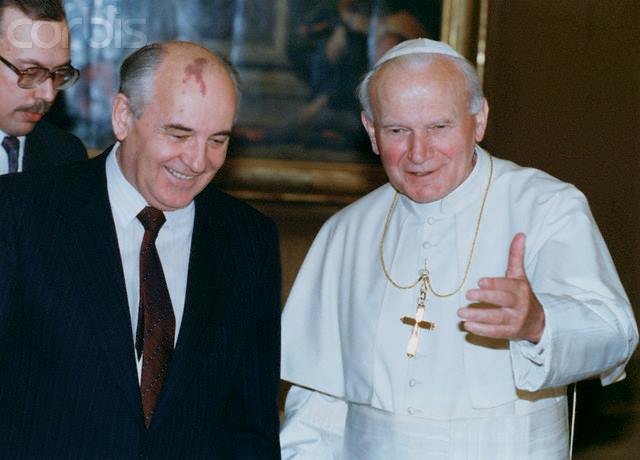
Pope Francis unsurprisingly hailed Gorbachov for his “far-sighted commitment to concord and fraternity among peoples as well as to progress for his own country at a time of important changes.” Afterall, in December 1989 during the global counter-revolution he unleashed Gorbachov did reach out to Pope John Paul II as the two embraced before the public in the Vatican, ending “the 72 years of conflict between Moscow and the Vatican.” The Roman Catholic Church who throughout history has been the bitter enemy of scientific, social, and revolutionary progress including leading the murderous campaign to crush them. From the Russian Revolution 1917 to every other social revolution of the 20th century, along with the revolutions in Europe of 1830 and 1848 to the French Revolution 1789 and the English Revolution 1640, the popes and clergymen were always on the side of the counter-revolutionaries, of the ancien régime against social progress and secularization. Therefore it was no wonder that Gorbachov who unleashed this reactionary tidal wave was welcomed so warmly by such a backwards pope, and agreed to establish diplomatic relations with Moscow.
The response from the Beijing Stalinists to Gorbachov’s death was particularly interesting if not contradictory. On one hand, the Chinese foreign minister Zhao Lijian sent condolences to Gorbachov’s family praising him for making “positive contribution to the normalization of relations between China and the Soviet Union.” On the other, the New York Times quoted Chinese leader Xi Jinping lamenting, “Finally, all it took was one quiet word from Gorbachev to declare the dissolution of the Soviet Communist Party, and a great party was gone.” While other Chinese commentators took to social media and personal blogs to launch a venomous attack on Gorbachov as a sellout. And indeed, he was. But the irony here is, that since Mao Tse-Tung embraced U.S war criminal Richard Nixon in 1972 while he conducted the heaviest bombing of North Vietnam in the war, China was formally allied with U.S imperialism in the anti-Soviet Cold War. This meant the support from the Chinese Stalinists to virtually every anti-Communist group throughout the globe including the destruction of the Soviet Union which Chinese state media applauded. From Boris Yeltsin to every new post counter-revolutionary leader was recognized by Beijing. No doubt the negative reactions to Gorbachov’s legacy in China is a result of the consequences they now face for their treachery in capitulating to imperialism during the Cold War. But it serves as another example of the political bankruptcy of Stalinism.
In the 1930’s, Bolshevik leader and cofounder of the October Revolution Leon Trotsky warned that unless Soviet workers overthrew the Stalinist bureaucracy in a political revolution, the fate of the Soviet degenerated workers state was ultimately counter-revolution with the Stalinists taking the role of the new capitalist class. Gorbachov’s ascension to head of the Soviet bureaucracy would take that role to the fullest. Perestroika was a scheme meant to improve the lives of Soviet citizens through the introduction of market reforms that instead widened the social inequalities and led to the further decline in living standards for working people and a small budding generation of yuppies. This provided the framework for the counter-revolutionary destruction of the USSR and a generation of capitalist shock treatment and austerity creating a level of poverty not seen since pre-revolutionary Russia. A wet dream for imperialist companies.
One of the features of Stalinist degeneration of the USSR was throwing the gates wide open of the Communist Party of the Soviet Union and allowing virtually anybody join. As Trotsky noted once that if one were to look into the Party one would find genuine Communists, but also find bourgeois-minded liberals and conservatives as well as nationalists and potential outright fascists. It was the same for all the other ruling parties in the deformed workers states of Asia and Eastern Europe and remains true for the ruling Stalinist parties of Cuba, China, North Korea, Vietnam, and Laos. They were no longer parties fighting against capitalism and imperialism for the liberation of the global masses, but nothing more than a members only club for careerists and opportunists. In the Soviet Union one such person out of many was none other than Mikhail Gorbachov. As a former colleague and fellow bureaucrat Nikolai Naumov recalled in a biographical documentary, “At this time when he and I were still working together, he showed me that he was a careerist.” He also recalled how Gorbachov was insistent that they standout to get noticed by the high-ranking CPSU bureaucrats. This is essentially how Gorbachov rose through the ranks to eventually head the USSR.

Glasnost was Gorbachov’s brand of Socialism in One Country, the nationalist lie that socialism can exist in a single country coined by Joseph Stalin that was practiced by selling out revolutionary situations under the illusion of peaceful coexistence with imperialism. Results that often proved disastrous for the Communists in a particular country such as in China 1927 and Spain 1936-39 that led to White Terror, the unrestricted murder of Communists and minorities. Gorbachov would execute the classic Stalinist program by the “extinguishing of hot spots”: pulling Soviet troops from Afghanistan leaving millions at the mercy of the CIA’s Mujahideen cutthroats, pressuring Vietnam to withdraw its troops from Cambodia where they were engaged in a wanning war against the genocidal U.S-backed Khmer Rouge as well as from Laos, pressuring the Cubans to withdraw from Angola after they dealt the death blow to the South African Apartheid regime, and beckoning the Sandinistas in Nicaragua to make peace with Washington’s Contras after they had been neutralized as a fighting force, and encouraging leftist guerillas in El Salvador and Guatemala to do likewise.
This was subsequently followed by Gorbachov encouraging counter-revolution throughout the East bloc by giving his endorsement of Gen. Jaruzelski forming a government with Solidarność in Poland and giving the green light to Miklós Németh for dismantling Hungary’s planned economy for a capitalist one. Mass upheavals in East Germany, Czechoslovakia, Bulgaria, Romania, Albania, and Mongolia toppled the conservative Stalinist leaderships where their own Gorbachovs took over and then sold out to capitalism. Cambodia formed a coalition government that eventually restored the monarchy while Yugoslavia was torn apart by civil war. Meanwhile the Soviet Union plunged into crisis with the region Stalinist Party bosses embracing their own nationalism and calling for secession. Russia found itself in a situation of dual power as Boris Yeltsin and a number of other Stalinists threw away their Party cards becoming the front men for capitalist counter-revolution. When the Kremlin “hardliners” staged the 1991 coup to remove Gorbachov and retake the Supreme Soviet headed by Yeltsin, they recalled the troops after a phone call from U.S president George H.W Bush telling them Yeltsin was his selected partner.
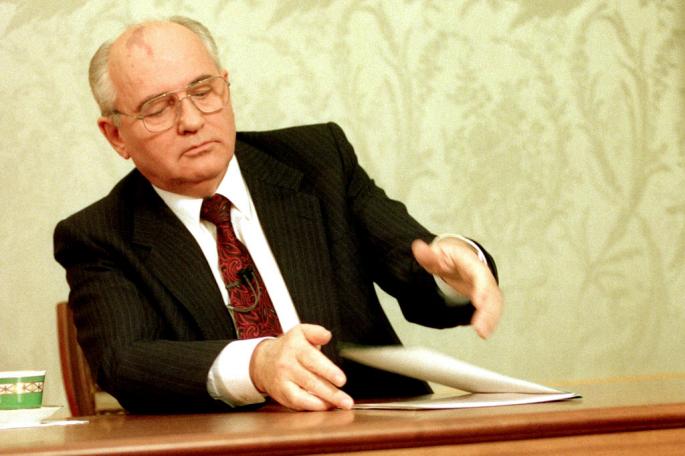
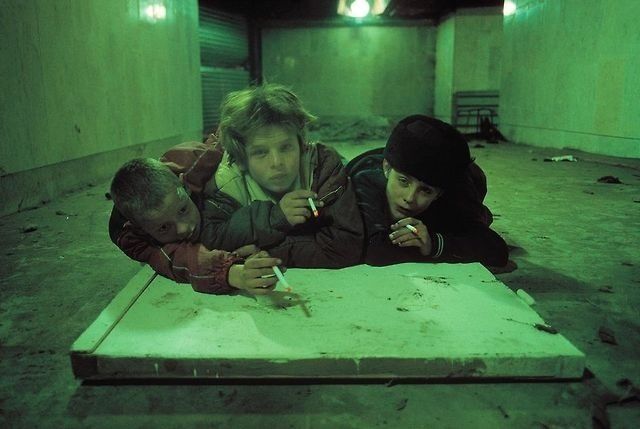
In the months that followed, unable to prevent the breakup of the Soviet Union on Christmas Day 1991, Gorbachov went on national television that was covered globally announcing his resignation as leader of the USSR. That same night, Yeltsin had the Soviet flag lowered in Moscow and replaced with the Czarist national tri-color flag. What emerged in Russia, other former Soviet republics, and Eastern Europe were capitalist kleptocracies that drove millions into destitution as their countries became neo-colonial outposts and sources of cheap labor for the West that they were now economically tied to and dominated by. So much for ending isolation and deprivation!
Not everyone in the Western sphere have joined the global bereavement for the passing of Gorbachov. While imperialist leaders and Western public paid tributes to him while shedding tears over the Russian invasion of Ukraine, Ukrainians who remember Gorbachov for his role in covering up the Chernobyl disaster 1986 including his refusal to cancel the May Day march in Kiev in which thousands marched surrounded by a radioactive cloud. Many Ukrainian nationalists were even more enraged when Gorbachov came out in support of the 2014 Crimea referendum allowing the Russian region to rejoin Russia. A fact Ukraine’s imperialists sponsors continue to overlook. Lithuania, one of the most ardent anti-Communist and anti-Russian regimes of NATO also did not join in the international mourning do to Gorbachov in a rather pathetic gesture to halt the damage he inflicted mobilized Soviet troops to stop Lithuanians from seceding. A confrontation left 14 Lithuanian nationalists dead prompting Gorbachov to pull back after he received a stark backlash from the imperialists who he hoped to ensure peace with.
Kazakhstan, another former Soviet republic that has been hailed as taking a stance against the invasion of Ukraine and drawing closer to the West, also did not join the international mourning. In December 1986 in a classic Stalinist and Russian chauvinistic move, Gorbachov sacked the widely respected Kazakh party boss Dinmukhamed Kunayev after accusing him of corruption and replaced him with a figure unknown to the Kazakh people and no less corrupt Russian bureaucrat Gennady Kolbin. This triggered a mass protest movement that was subsequently crushed by KGB shock troops leaving up to two hundred dead and hundreds injured over a period of three days. The events are remembered in Kazakhstan as the December Uprising 1986.

In Russia people were much less remorseful save for a few thousand over Gorbachov’s death, including pro-Western politicians and activists such as Aleksey Navalny. For millions of Russians who faced the catastrophic consequences of Peerestroika, namely the capitalist counter-revolution which resulted in the total collapse of the economy by domino effect as one state-owned enterprise after another was sold to the highest bidder resulting in massive unemployment, evictions, homelessness, unpaid salaries and pensions, alcoholism and drug use, a steep increase in mortality rates including infant mortality rate and produced more orphans than the Nazi war; plus a staggering drop in agricultural production by up to 33%. Yet even before the Soviet Union fell, the overall attitude from Soviet workers to Gorbachov and Yeltsin alike was highly unfavorable. For example, the late Yeltsinite jounralist Artyom Borovik told 60 Minutes on 25 August after the “hardliners” pulled back the tanks and troops from the Yeltsin’s barricades at the Supreme Soviet, “The majority of the workers here supported the attempted coup. They’re actually afraid of more perestroika. So far its only brought them more misery.”
At the same time Vladimir Putin refused to attend Gorbachov’s funeral but gave condolences to his family and friends. Whereas Russian prime minister Mikhail Mishutsin praised Gorbachov as “a great statesman.” The more nationalist figures such as Putin’s cronies of United Russia along with Gennady Zyuganov, leader of the grossly misnamed Communist Party of the Russian Federation regarded Gorbachov as “worse than Hitler for Russia” in the words of Vitaly Milonov. Zyuganov reacted to the glogal tributes saying, “I believe that Gorbachev was one of those rulers in the thousand-year history of Russia, who brought all the peoples not only of our country, [but also] allies and friends absolute misfortune, sorrow and trouble.” The reactions of Putin, Zyuganov, and the rest little doubt presents the equation to the naive common Westerner that Moscow’s ultimate objective is to restore the USSR. They love to evoke Putin’s infamous quote that the fall of the USSR was “the greatest geopolitical tragedy of the 20th century.” But what Putin, Aleksandr Dugin, and the rest mourn is not the abandonment of the collectivized and planned economy brought by the October Revolution, but the fact the Russia lost control of the other 14 republics with the Soviet collapse. They would have been content with a new capitalist Prison House of Peoples dominated by Moscow. Putin’s condolences were no doubt an acceptance of the fact that he owes his wealth and power to Gorbachov as well as Yeltsin for that matter.
These facts also illustrate the belittlement of Russian people as whole among the Western public. The wide perception of this nation of barbaric Mongoloid, uncivilized, and anti-democratic Slavic savages is the demand that Russia have a leader that will be acceptable to the West at the expense of the Russian people. A leader that will keep the millions of people in Russia deprived and impoverished to ensure that Russia does not become a rival to the Western imperialists. This is the reason Gorbachov has earned his place in the Western public as an ideal Russian leader right next to Yeltsin, Czar Nikolai II, and the turncoat Gen. Andrey Vlasov who collaborated with the Nazis. Capitalist Russia is not an imperialist power, but a second-rate regional power with nuclear weapons. However, it can potentially become imperialistic particularly with the economic growth and military reform it experienced under Putin, though still inferior by Soviet standards. Putin pulled the Russian economy from IMF and World Bank domination, and most recently stood in the way of EU/NATO expansion to absorb Ukraine. This is why he is hated in the West. Whereas, Gorbachov who paved the way for all of imperialism’s global endeavors is loved in and mourned.
